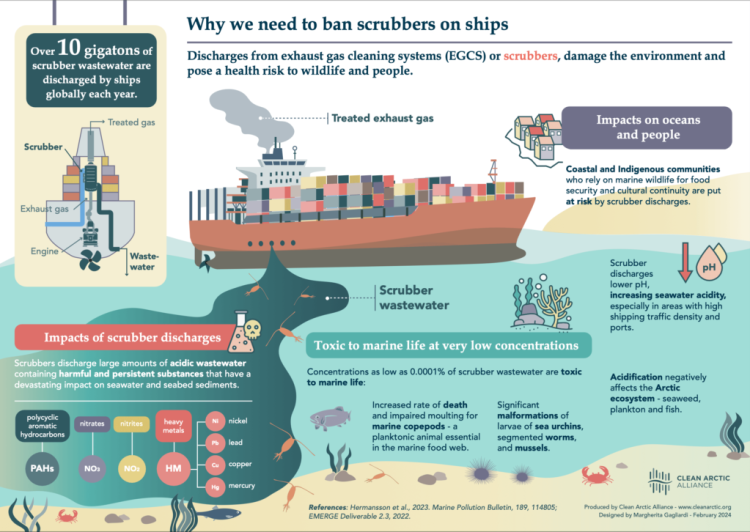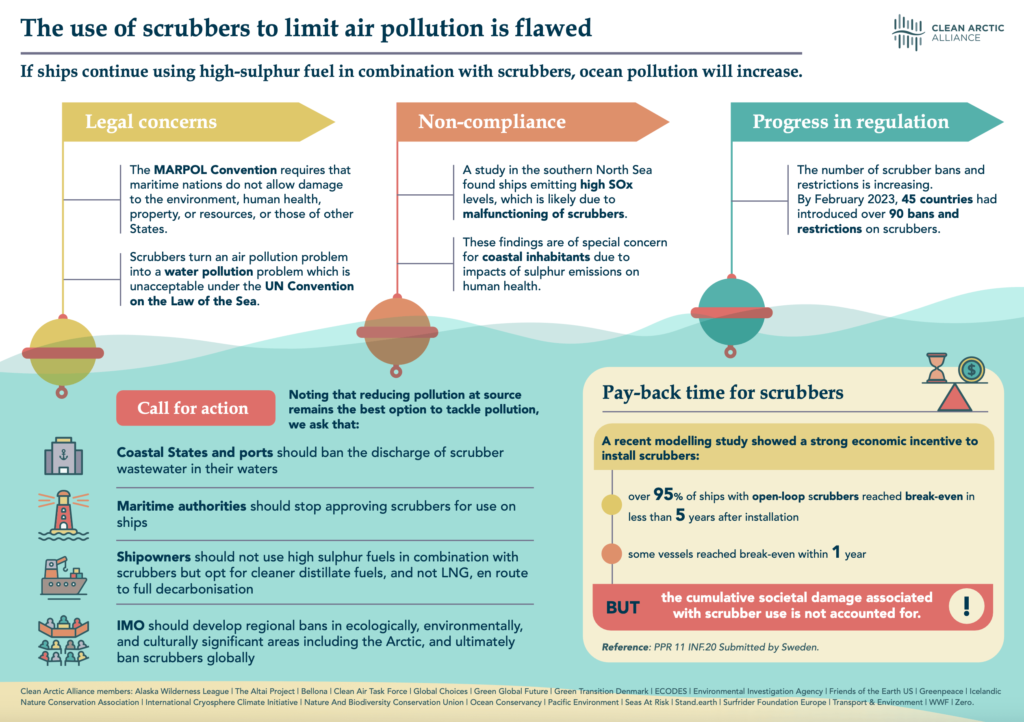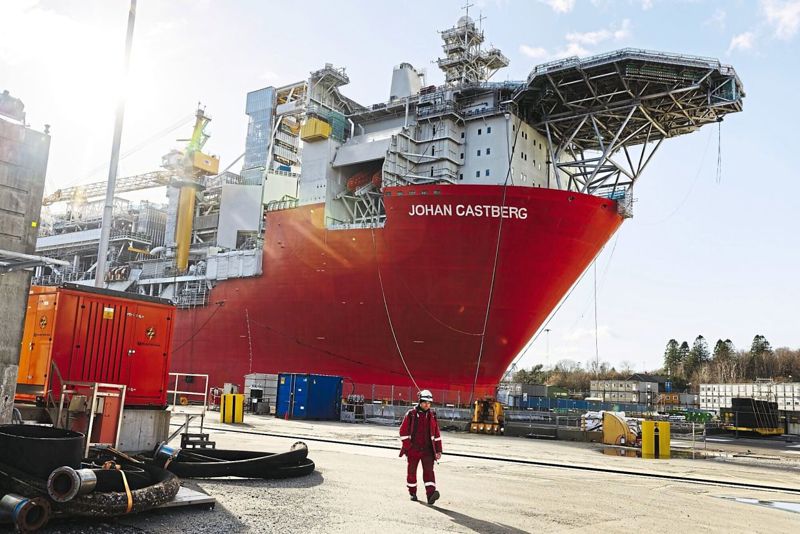The Clean Arctic Alliance calls for a worldwide ban on scrubbers and a transition to cleaner fuels in line with Sustainable Development Goal 14, which aims to prevent and reduce marine pollution.

What are scrubbers?
In 2009, the International Maritime Organization (IMO) regulated Sulphur Oxides (SOx) and Nitrogen Oxides (NOx) emissions from ships to reduce air pollution and its associated health impacts. Ships can comply by reducing sulphur content in fuel or installing Exhaust Gas Cleaning Equipment (EGCS), commonly known as scrubbers. Scrubbers clean exhaust gas by creating a mist of seawater to bind SOx, but in the ‘open loop’ type, this seawater with pollutants is then flushed overboard, contributing to ocean acidification and adding a mix of toxins, including heavy metals and carcinogens, to the marine environment.
Contaminants released in the water
According to Clean Arctic Alliance, despite concerns raised about the environmental impact of scrubber wastewater, IMO Members in 2009 deemed them an acceptable alternative to cleaner fuels. Recent scientific studies, such as one by the EMERGE project funded by the European Commission, show that scrubbers produce large volumes of wastewater containing a wide range of contaminants, affecting marine life, particularly marine invertebrates.

As a result, over 45 coastal and port states globally have begun to regulate scrubber discharges, and countries like Denmark have decided to ban scrubber discharges in their territorial seas.
Who’s paying the price?
Economically, studies reveal that over half of the global scrubber-fitted fleet reached economic break-even by the end of 2022, with a surplus of €4.7 billion, and the cost of scrubbers was paid back within five years for over 95% of ships.
In contrast, the marine ecotoxicity damage cost from scrubber water discharge in the Baltic Sea Area from 2014-2022 exceeded €680 million, highlighting that private economic interests come at the expense of marine environmental damage, Clean Arctic Alliance notes.
Scrubbers will be discussed at MEPC 82, the IMO’s environment committee, in September 2024, providing an opportunity to make crucial decisions to end marine pollution from scrubbers.
The best – and ultimately only – solution is to ban scrubbers worldwide and switch to cleaner fuels ahead of complete decarbonisation, and in the meantime we continue to push the IMO and its member states and international bodies, such as the EU, to roll out scrubber wastewater restrictions as soon as possible.
… concludes Clean Arctic Alliance




I was recommended this website by my cousin I am not sure whether this post is written by him as nobody else know such detailed about my difficulty You are wonderful Thanks
Hi my loved one ) I wish to say that this post is amazing nice written and include approximately all vital infos! I’d like to peer more posts like this )
I have been browsing online more than three hours today yet. I never found any interesting article like yours! It is pretty worth enough for me.